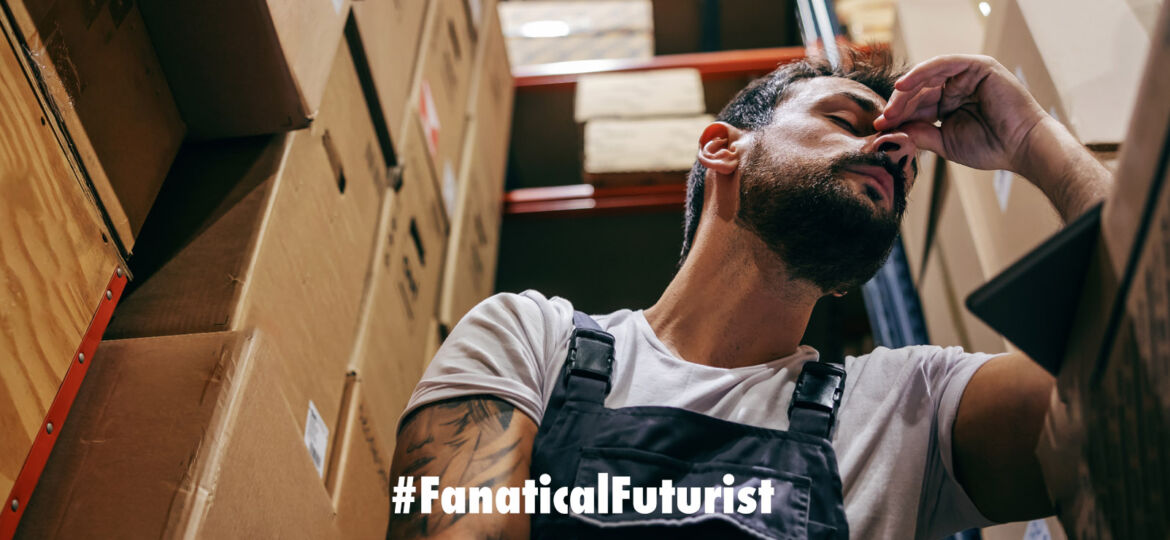
WHY THIS MATTERS IN BRIEF
AI might be becoming a Big Brother that’s hiring, managing, and firing workers, but it has health benefits in the workplace too …
 Love the Exponential Future? Join our XPotential Community, future proof yourself with courses from XPotential University, connect, watch a keynote, or browse my blog.
Love the Exponential Future? Join our XPotential Community, future proof yourself with courses from XPotential University, connect, watch a keynote, or browse my blog.
Artificial Intelligence (AI) is increasingly being embedded within the entire employee lifecycle, from finding and hiring people, to managing and even firing them – all automatically. And Amazon and Uber are at the forefront with Uber’s algorithm recently being taken to court for unfairly firing drivers in the UK.
Now though Amazon, who’s often accused of treating staff like expendable robots, is taking the use of AI a step further and. And like the machines, sometimes employees break down.
A 2019 survey of 145 warehouse workers found that 65 percent of them experienced physical pain while doing their jobs with almost half, 42 percent, saying that the pain persists even when they’re not working. And, oddly, that’s a real shame — for Amazon. Afterall, those pesky injuries can slow down the company’s relentless pace of work.
But the e-commerce giant may have found a solution. Is it a more humane workload? Upgraded workers’ rights? Of course not. It’s an algorithm that switches staff around tasks that use different body parts.
Jeff Bezos unveiled the system in his final letter as CEO to Amazon shareholders:
“We’re developing new automated staffing schedules that use sophisticated algorithms to rotate employees among jobs that use different muscle-tendon groups to decrease repetitive motion and help protect employees from MSD [musculoskeletal disorder] risks. This new technology is central to a job rotation program that we’re rolling out throughout 2021,” he said.
The world’s richest man then added that the AI has already reduced these injuries, adding that Muskoskeletal Disorders (MSDs) at the company dropped by 32 percent from 2019 to 2020. More importantly, MSDs resulting in time off work decreased by more than half.
Those claims probably shouldn’t be taken at face value, however. Last year, an investigation found that Amazon had misled the public about workplace injury rates, and Bezos did acknowledge that the company still needs to do a better job for employees. But he disputed claims that employees are “treated as robots.”
“Employees are able to take informal breaks throughout their shifts to stretch, get water, use the restroom, or talk to a manager, all without impacting their performance,” he said.
He then added that Amazon is going to be “Earth’s Best Employer” and “Earth’s Safest Place to Work,” and it looks like AI will be at the forefront of making that happen. But reports of staff peeing in bottles, shocking injury rates, union-busting, invasive surveillance, and impossible performance targets suggest he, or at least his algorithms, have got a long way to go …
















